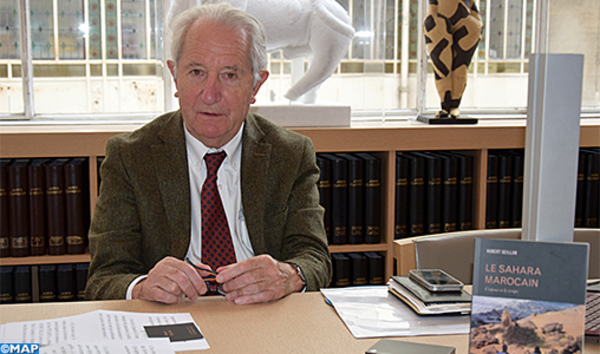American Entreprise Institute
Michael Rubin@mrubin1971

Perhaps no state in the Middle East has such a long history of friendship with the United States as Morocco. Sure, the United States has had tight ties with Israel, Jordan, and Saudi Arabia, but the US-Moroccan relationship predates these by more than 150 years.
Throughout the Cold War, Morocco stood firmly in the pro-Western camp, never so much as even flirting with the Soviet Union as Egypt did, let alone joining its camp as Algeria and Libya had. Since the end of the Cold War, Morocco has taken a no-nonsense approach both to Islamist radicalism and terrorism. Saudi Arabia spent decades funding radical Islamism; Morocco spent decades seeking to repair the damage, combining good, hard intelligence and security work with the development of perhaps the most successful training program to ensure religious authorities act as a force of restraint, spirituality, and tolerance rather than a catalyst for radicalism.
How unfortunate it has been that the United States, and the United Nations, seem intent on undermining the only stable, tolerant country in the Sahel. Much of their efforts appear to rest on bad history and personal agendas.
The root of the dispute centers on the Western Sahara. For decades, the Polisario Front, a Marxist group with the same relationship to the Algerian military that Hezbollah has to Iran’s Islamic Revolutionary Guard Corps, operated under the pretense of leading the self-styled Sahrawi Arab Democratic Republic. It argued that it was the rightful heir to the Western Sahara and that Morocco, which incorporated the region in 1975, is occupying “Africa’s last colony.”
Human rights activists and academics have never met an oppressed colonial people for which they couldn’t advocate. Alas, the Polisario’s case was nonsense. Historically, the territory now comprising the Western Sahara has been as much a part of Morocco as Virginia has been part of the United States. Indeed, five Moroccan dynasties dating back more than a millennium have their roots in the territory. The only reason why the Western Sahara is a separate territory in many eyes is because the Spanish seized it and held it as a colonial spoil.
To support the Sahrawi claims is not only to embrace a Cold War throwback, but also to legitimize the very imperialism that so many anti-colonial activists say they oppose. For officials — UN Secretary-General Ban Ki-moon, for example — to refer to the Moroccan presence in the Western Sahara as ‘occupation’ is nothing short of ignorant. Historically and legally, it’s no such thing.
Now, John Conyers and Joe Pitts, both congressmen, write in Politico that Morocco promised the Western Sahara a vote on its independence 41 years ago but hasn’t fulfilled its pledge. Not quite. While they are right that the UN established a mission (MINURSO) to organize a referendum to determine the desire of Sahrawi refugees, they completely ignore the fact that Algeria has for a quarter century refused to allow an independent census to determine who in the Tindouf refugee camps, which the Polisario and Algerian security run like prisons, actually comes from the Western Sahara as opposed to Mauritania or Algeria. The congressmen should understand the importance of accuracy and standing. After all, they are among the 435 members of the House of Representatives. If suddenly, 800 people showed up claiming to be members, they probably wouldn’t consider the resulting vote legitimate.
Learn more:
Why the Western Sahara matters
Pitts is co-chairman of the Tom Lantos Human Rights Commission and genuinely cares for human rights. He castigates Morocco for “brutal” rule in the region but he appears unaware that the Western Sahara is now among the most prosperous regions of Morocco on a per capita basis for all its residents. Morocco has also granted the Western Sahara regional autonomy.




